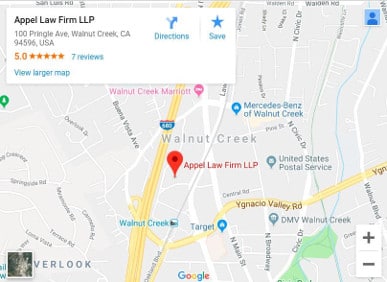Congress created the Occupational Safety and Health Administration (OSHA) in 1970 for purposes of assuring safe and healthy working conditions for American workers. Establishment of standards for working conditions, while providing outreach, education, and assistance to workers and their employers is its mission. OSHA also enforces its standards when violations are determined to exist. Work sites and businesses are subject to periodic and unannounced OSHA inspections. Inspections might also be prompted by employees’ safety complaints. If pursuant to an OSHA inspection, safety violations are determined to exist, they’re categorized from minor to extremely hazardous. There are six categories of violations connected with the violations range from those that are recommended by OSHA to a mandatory penalty. From the ground up, those categories are:
De Minimus
When these violations occur, the employer has implemented a safety precaution that isn’t consistent with that specified by OSHA. There’s no direct or proximate connection with health or safety. The nature of the violation is described with particularity, and a reasonable time is permitted for remedial measures.
Other-than-serious
If there’s a likelihood of an incident, accident or injury that would result from a hazardous condition that wouldn’t result in serious injuries or death, it would still pose a direct and proximate threat to the health and safety of employees. There’s a discretionary penalty of up to $7,000 for each other-than-serious violation. They can be adjusted down up to 95 percent, depending on any mitigating evidence.
Serious
This is like a finding of negligence with no damages. With a serious violation, there’s a substantial probability that the employer knew or should have known that serious injury or death could result from the condition. A mandatory penalty of up to $7,000 is sought, but again, it can be adjusted down depending on any mitigating evidence.
Willful
When an employer knowingly commits a violation of a standard with indifference to those standards and knows that their conduct is a violation and made no efforts at eliminating it, a penalty of up to $70,000 can be sought for each such violation with a minimum of $5,000 per violation. If an employee’s death has resulted, the violation is also punishable by a term of imprisonment not to exceed six months. Under these circumstances, a fine of up to $250,000 for a person can be imposed. For a corporation, the fine can reach as high as $500,000.
Repeat Violation
If upon re-inspection, a dangerous condition remains that was previously contested but determined to be valid, the employer faces a fine of up to $70,000 for the violation and $7,000 for each individual violation.
Failure to abate prior violation
A civil penalty of up to $7,000 per day can be imposed for a continuously uncorrected violation beyond the prescribed date for abatement after a subsequent inspection. OSHA regulations exist to keep people safe at work. A common OSHA violation involves failure to provide safety equipment. Other violations involve failure to inspect and perform proper maintenance on equipment. More workers are injured in the construction industry than any other industry. OSHA recently announced its annual safety findings and listed its top 10 safety violations for 2014. Three of those involved violations directly related to falls. If a worker is injured, and an owner, developer, general contractor or subcontractor was in violation of OSHA rules, any OSHA violations could be used against one or more of those entities under California law for purposes of establishing liability and damage in an injury case. At Appel Law Firm LLP we take work related injuries very seriously. We’re experienced, aggressive and successful, but we are also compassionate. We’re fully aware of how your serious injury affects you and your family. Whether it’s a personal injury or work accident or a wrongful death, you can call us to arrange for a free consultation and case evaluation at our Walnut Creek office. Feel free to call us at 888-527-6905, or complete our online contact form.

Speak Your Mind